Exploring Synthetic Peptide Databases: Your Gateway to Cutting-Edge Research
With the continuous advancement of life sciences, synthetic peptide databases are playing an increasingly important role in drug development and biological research. Let’s uncover the mysteries of synthetic peptide databases!
1. What is a Synthetic Peptide Database?
A synthetic peptide database is a specialized resource that compiles information on synthetic peptides. It contains a wealth of data, including peptide sequences, structures, functions, and application cases. These peptides can be utilized in various fields, such as drug development and biological research. The content of these databases typically includes peptides derived from multiple biological sources, such as animals, plants, and microorganisms, covering a wide range of amino acid sequences.
2. Common Categories of Synthetic Peptide Databases
(1) Proteomics Databases: These databases house a large collection of validated proteins and their corresponding peptide information, providing researchers with rich peptide resources. They can be used for studying protein interactions by simulating parts of proteins to explore key interaction regions.
(2) Peptide Databases: This category includes a variety of peptide sequences and their biological information, such as peptide length and amino acid composition, facilitating easy search and selection for researchers.
(3) Drug Development Databases: These databases specifically focus on peptide information related to drug development, including candidate peptides for drugs and efficacy evaluation peptides, serving as starting points for drug design, particularly for developing inhibitors or activators targeting specific protein sites.
(4) Bioinformatics Databases: Bioinformatics databases encompass a wide range of biological information resources, including peptide data, gene information, and protein details, providing comprehensive data support for researchers.
3. Common Synthetic Peptide Databases
Synthetic peptide databases are vital resources for storing and managing synthetic peptide information, playing a crucial role in fields such as drug development, vaccine design, and protein engineering. Below are some notable synthetic peptide databases:
1) PeptideAtlas: This public database collects peptide and protein data identified through mass spectrometry. It thoroughly annotates eukaryotic genomes by validating expressed proteins, offering a comprehensive and verified resource for synthetic peptides.
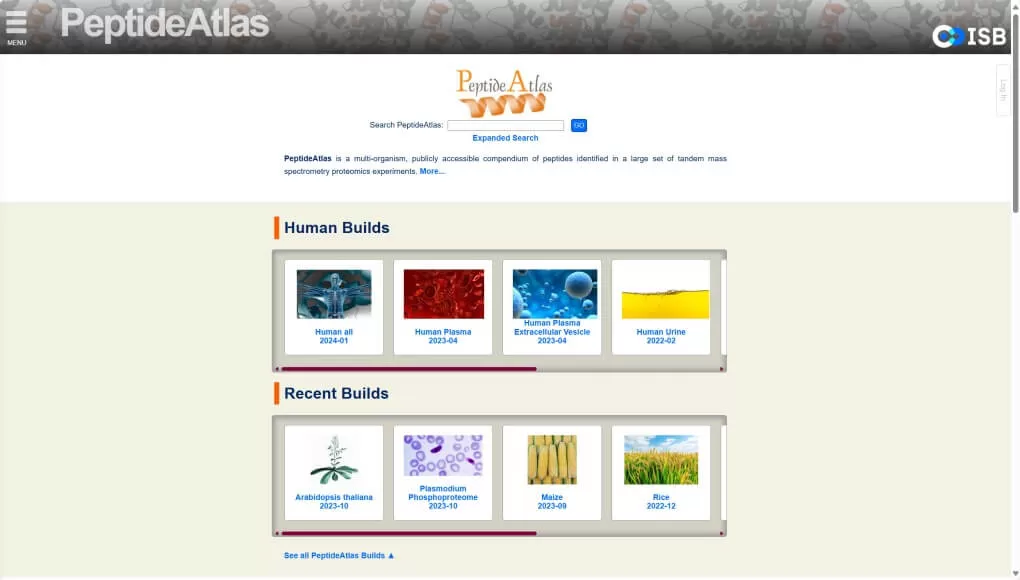
2) PeptideDB: This database provides detailed information about synthetic peptides, including sequences, structures, functions, and synthesis methods.
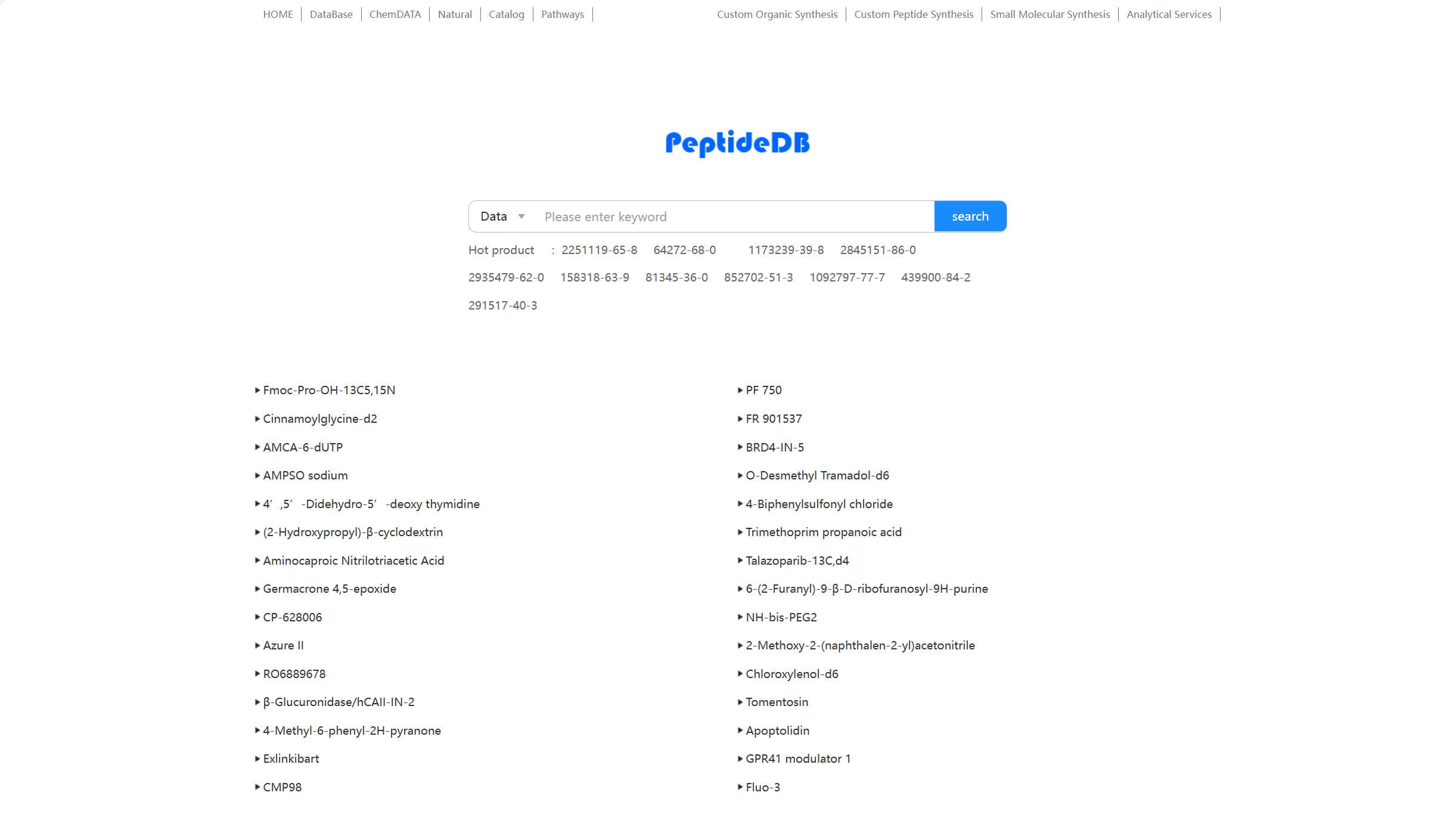
3) THPdb: This comprehensive database is based on approved and investigational therapeutic peptides, including descriptions, sequences, indications, mechanisms of action, pharmacodynamics, toxicity, metabolism, absorption, half-life, volume of distribution, clearance rates, patent information, interactions with other drugs, targets, and physicochemical properties.
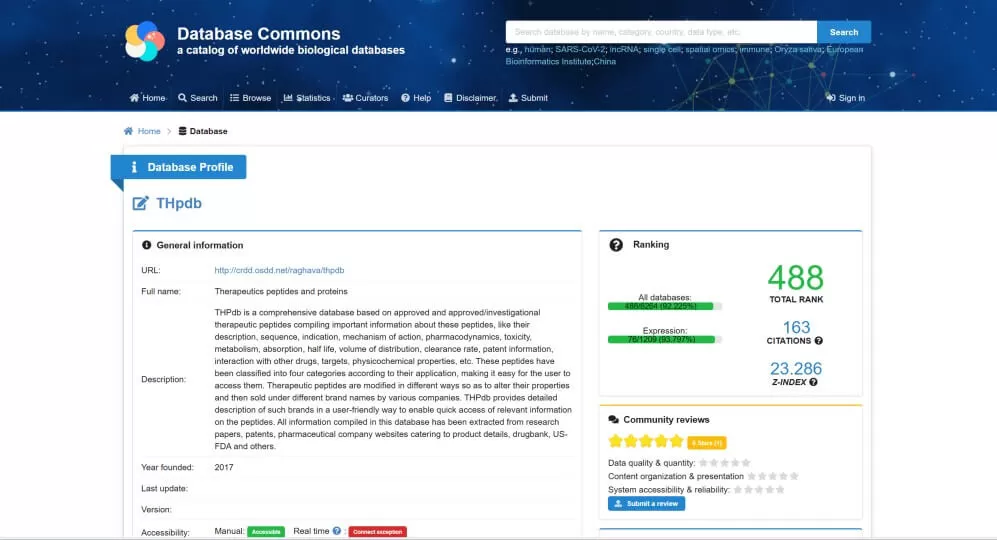
4) Antimicrobial Peptide Database (APD): This database focuses on antimicrobial peptides, providing sequences, structures, antibacterial activities, and references. As of January 2024, the APD contains 3,940 peptides, including 3,146 natural antimicrobial peptides from various organisms. Additionally, it features 190 predicted antimicrobial peptides and 314 synthetic ones.
_1729563457_WNo_815d780.webp)
5) CancerPPD (Cancer-Related Peptide Database): This database collects peptides associated with cancer, including anticancer peptides and tumor marker peptides. It utilizes PEPstr to predict the tertiary structures of peptides and DSSP to determine secondary structure states. The database also links modified peptide structures with key peptide and protein databases such as IEDB, PDB, Swiss-Prot, and TrEMBL.
_1729563502_WNo_813d851.webp)
6) Immune Epitope Database (IEDB): While primarily focused on immunogenicity and epitopes, this database also contains extensive information on synthetic peptides, particularly for vaccine development and immunological research.
_1729563558_WNo_1116d801.webp)
7) SignalPeptide: This database includes information on signal peptides from mammals, fruit flies, bacteria, and viruses.
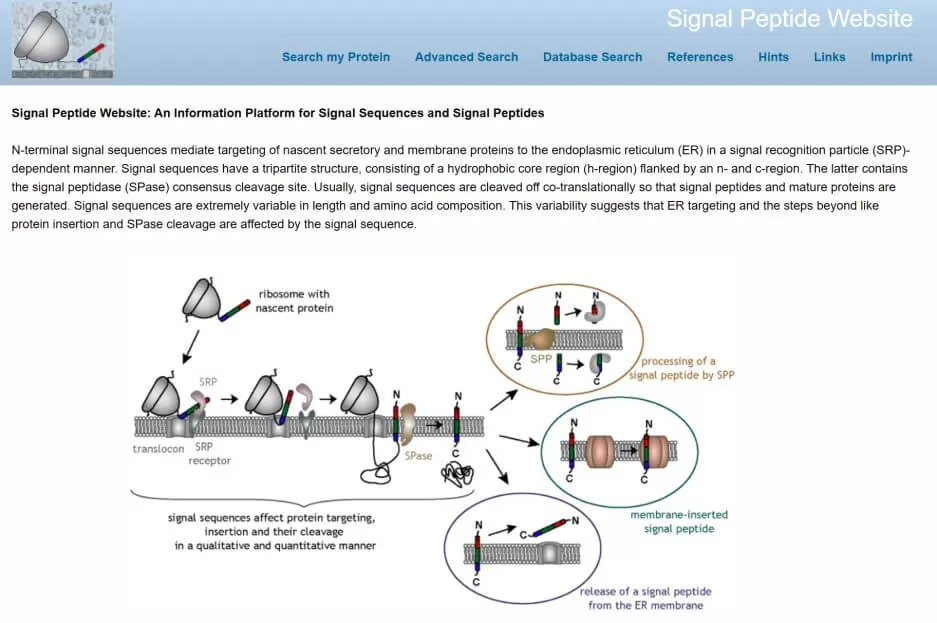
8) PepBank: PepBank is a peptide database based on sequence text mining and public peptide data sources, containing only 20 amino acids or shorter peptides with available sequences.
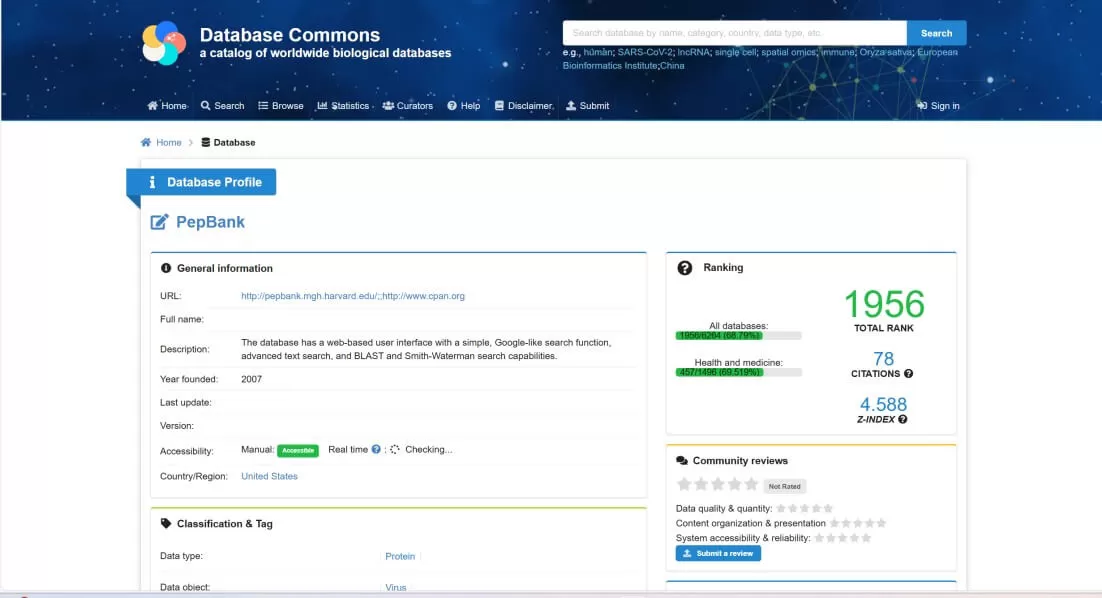
9) DBAASP: The Database of Antimicrobial Activity and Structure of Peptides (DBAASP) aims to provide information and analytical resources for designing antimicrobial compounds with high therapeutic indices. It contains information on ribosomal, non-ribosomal, and synthetic peptides, showcasing their antimicrobial activity in monomers, polymers, and polypeptides, which can be used for antimicrobial peptide design and property prediction.
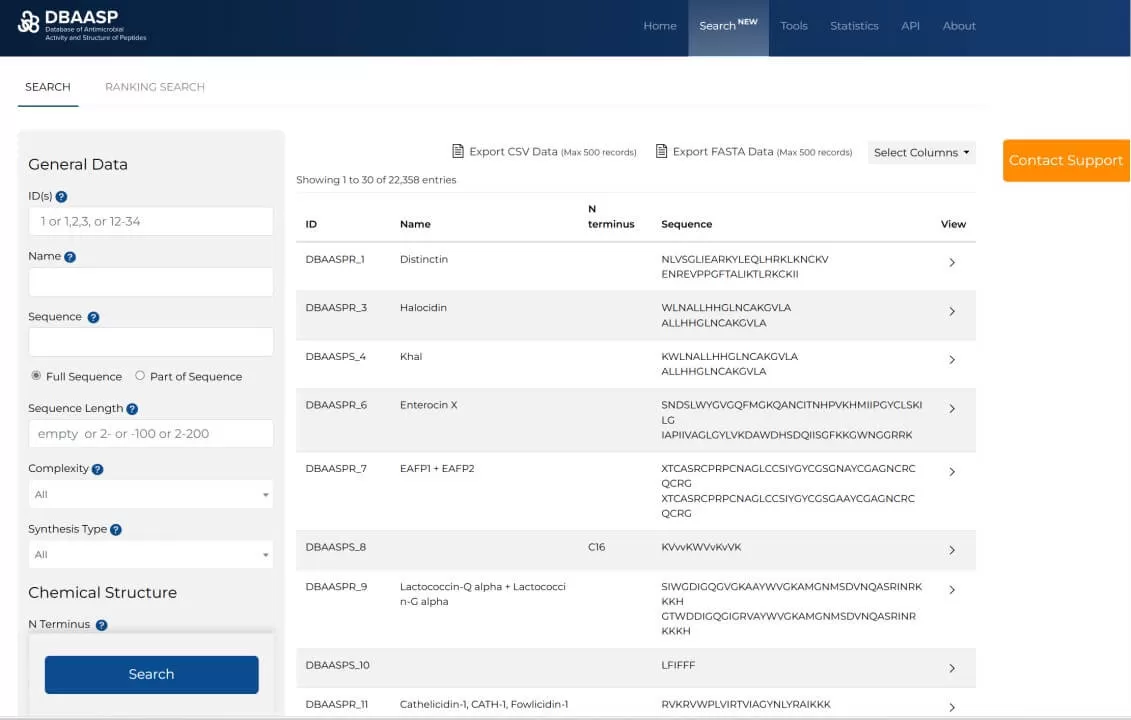
10) CPPsite: This database offers comprehensive information about Cell Penetrating Peptides (CPPs), containing 1,855 entries. It provides extensive details on experimentally tested CPPs and predicts their secondary and tertiary structures to elucidate their structure-function relationships.
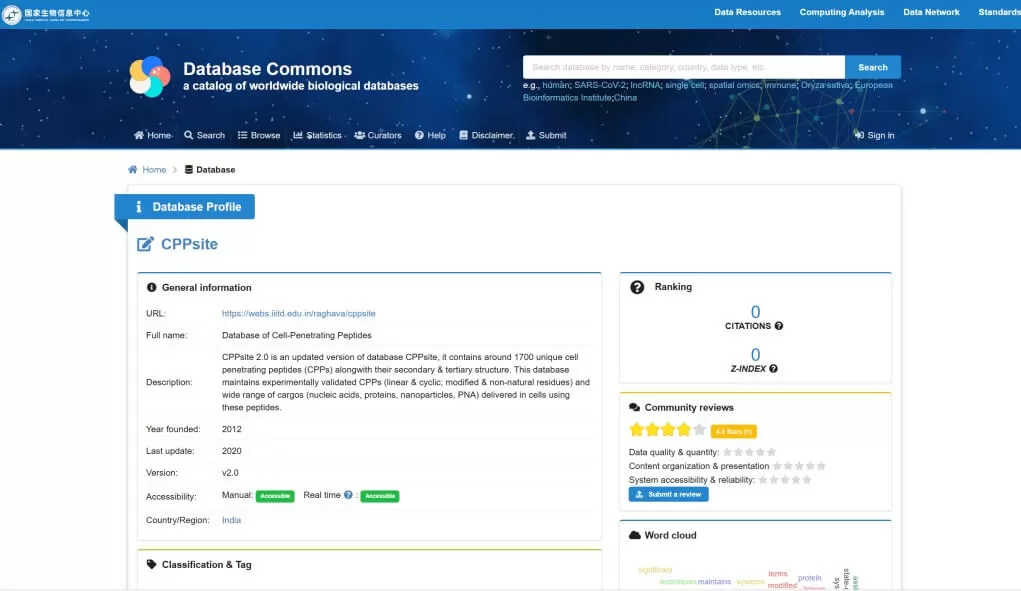
11) TumorHoPe: TumorHoPe is a curated database that includes 744 experimentally characterized tumor-homing peptide entries. These peptides can selectively deliver drugs to tumor tissues and tumor-associated microenvironments, including metastatic sites.
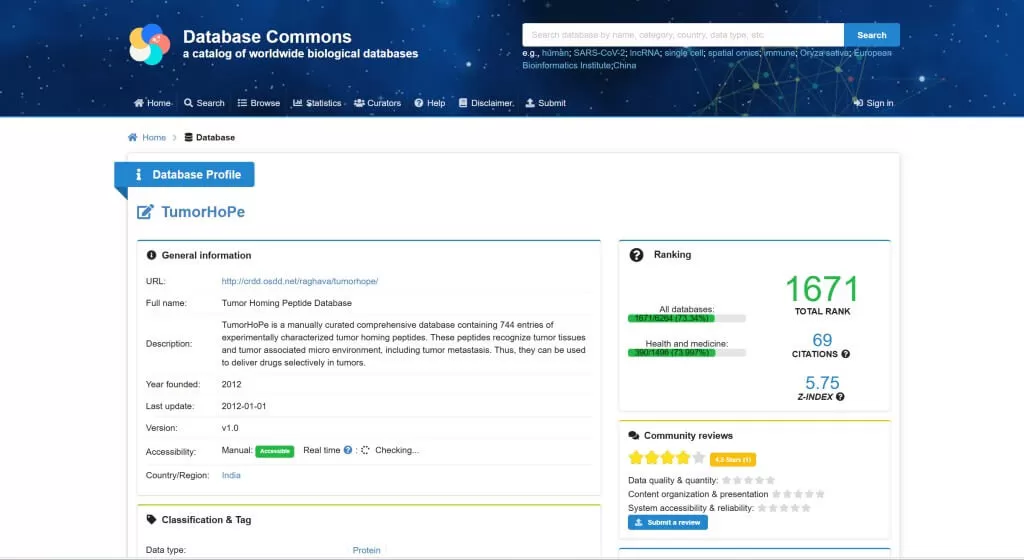
12) PlantPepDB: This manually curated plant peptide database features peptides with various functions and therapeutic activities. It contains 3,848 peptide entries collected from 11 databases and 835 published research articles, providing comprehensive information, including sequences, functional data, sources, physicochemical properties, and tertiary structures.
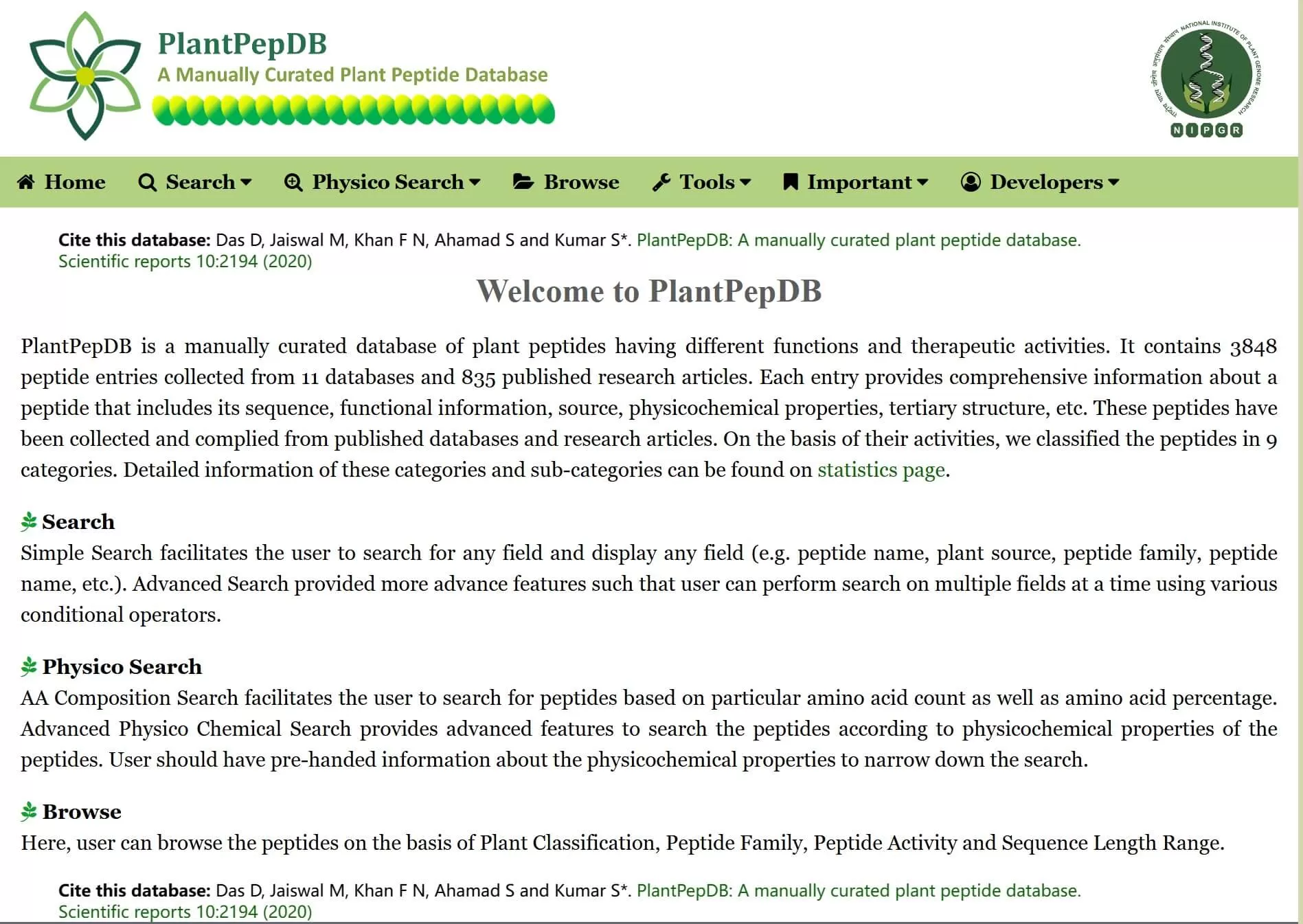
These databases offer tools for searching, browsing, filtering, downloading, and analyzing synthetic peptides, supporting researchers in peptide design, synthesis, and functional studies.


